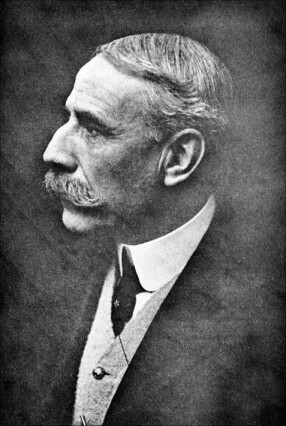A bit of late-summer Elgar
As we round the corner into the fall season (and the much-anticipated return of the full choir on September 9!) it’s time to dust off our blog and get it up and running again.
 So a note about the music this Sunday, which is a bit fixated on the English composer Edward Elgar (1857–1934), a towering figure in the world of British music. A bit of a window into exactly how revered Elgar was and remains in England can be gleaned by a stroll down the North Choir Aisle of Westminster Abbey in London. Here in the floor, among memorial stones to (and in some cases graves of) Henry Purcell, Charles Villiers Stanford, Ralph Vaughan Williams, William Walton, and Herbert Howells is a memorial stone to Elgar. The stone was unveiled in 1972 by Edward Heath, the Prime Minister at the time.
So a note about the music this Sunday, which is a bit fixated on the English composer Edward Elgar (1857–1934), a towering figure in the world of British music. A bit of a window into exactly how revered Elgar was and remains in England can be gleaned by a stroll down the North Choir Aisle of Westminster Abbey in London. Here in the floor, among memorial stones to (and in some cases graves of) Henry Purcell, Charles Villiers Stanford, Ralph Vaughan Williams, William Walton, and Herbert Howells is a memorial stone to Elgar. The stone was unveiled in 1972 by Edward Heath, the Prime Minister at the time.
Elgar is rightly famous for his large-scale works, including The Dream of Gerontius, perhaps his best-known choral work. Shortly after composing, Dream, Elgar wrote another large choral work, The Apostles, from which we will sing “The Spirit of the Lord” in Epiphany. But that’s another Elgar for another time.
The organ prelude this Sunday comes from a large-scale work of the instrumental variety, Elgar’s first Organ Sonata. Elgar wrote this sonata in 1895 for the visit of some American musicians to Worcester Cathedral. Elgar did not complete the work until only a few days before the premiere at which “[Hugh] Blair’s performance of the Sonata showed that he had either not learned it or else had celebrated the event unwisely, for he made a terrible mess of poor Elgar’s work.” I will do my level best to play the third movement better than Blair.
The part song “As torrents in summer” comes from the cantata King Olaf, a setting of an epic poem by Longfellow. Though not sacred work, per se, this part song presents a marvelous image for Christian worship, especially in these late days of summer.
As torrents in summer, Half dried in their channels,
Suddenly rise, tho' the sky is still
For rain has been falling.
Far off at their fountains;
So hearts that are fainting Grow full to
And they that behold it, Marvel, and know not
That God at their fountains
Far off has been raining!
On the other end of the spectrum is Elgar’s small-scale, standalone “Ave

